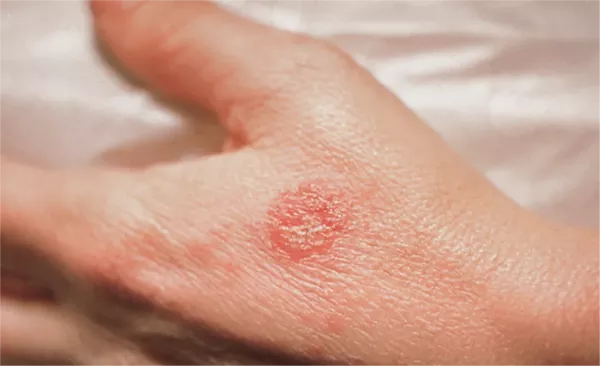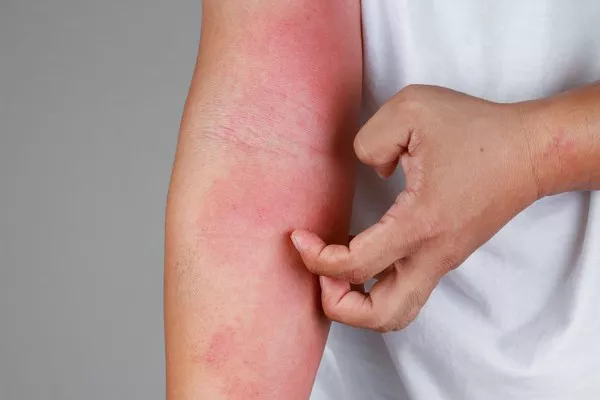Eczema, also known as atopic dermatitis, is a common skin condition that causes dry, itchy, and inflamed patches of skin. These patches can appear anywhere on the body and may range from mild to severe. For many people, eczema can be uncomfortable, especially when it comes to managing flare-ups that affect their appearance. If you’re looking for ways to cover eczema while keeping your skin healthy and comfortable, there are several effective strategies to consider.
This guide will explain how to cover eczema using makeup, clothing, and other methods. It will also provide tips for managing flare-ups and preventing future outbreaks. Whether you’re dealing with eczema on your face, arms, or other areas of the body, you can find solutions that help conceal flare-ups without making them worse.
Understanding Eczema
Eczema is a chronic condition that causes the skin to become inflamed, itchy, and irritated. While the exact cause is not fully understood, it is believed to be related to an overactive immune system response. This response leads to inflammation in the skin, which can cause symptoms such as dryness, redness, and itching.
There are different types of eczema, including atopic dermatitis, contact dermatitis, and seborrheic dermatitis. The severity of eczema varies from person to person, and flare-ups can be triggered by several factors, including allergens, stress, and changes in temperature.
While eczema is not contagious, it can affect a person’s confidence due to the visible patches of skin. Many individuals with eczema want to know how to cover up the condition, especially during a flare-up, when the skin can appear red and inflamed.
How to Cover Eczema with Makeup
One of the most common ways to cover eczema is by using makeup. When applied correctly, makeup can help conceal redness and even out the skin tone, making eczema less noticeable. However, it’s important to choose the right products and use them in a way that won’t irritate the skin.
1. Choose the Right Foundation
Foundation is the key to covering eczema on the face. Choose a foundation that is designed for sensitive skin. Look for products that are fragrance-free, hypoallergenic, and non-comedogenic (meaning they won’t clog pores). Mineral foundations are often a good choice, as they are less likely to cause irritation.
You should also choose a foundation with a lightweight formula. Heavy foundations can feel uncomfortable on eczema-prone skin, especially if the eczema is already inflamed. Opt for a buildable foundation that provides good coverage without being too thick or cakey.
2. Use a Moisturizing Primer
Before applying makeup, it’s important to hydrate and prep the skin. Use a moisturizing primer to create a smooth base for your foundation. A primer with ingredients like hyaluronic acid or glycerin can help lock in moisture and create a barrier that prevents makeup from settling into the dry, flaky areas of eczema.
3. Conceal with a Creamy Concealer
For specific eczema patches that are more prominent, use a creamy concealer to cover them up. A concealer with a thicker consistency can provide more coverage than foundation alone. Choose a color that matches your skin tone, and gently tap it onto the affected areas using your fingertip or a small brush.
Make sure to blend the concealer well so that it seamlessly matches the surrounding skin. Avoid rubbing or pulling at the skin, as this can make eczema worse.
4. Set with Powder
Once your foundation and concealer are applied, set everything with a light dusting of translucent powder. This will help the makeup stay in place without adding extra texture to the skin. Choose a powder that is finely milled to avoid clogging the pores or irritating sensitive skin.
5. Avoid Irritating Ingredients
When selecting makeup, be mindful of the ingredients. Avoid products that contain alcohol, fragrance, or strong chemicals, as these can irritate eczema and make flare-ups worse. Always do a patch test before trying a new product to ensure it doesn’t cause a reaction.
Using Clothing to Cover Eczema
In addition to makeup, clothing is another way to cover eczema on the body. Whether you have eczema on your arms, legs, or torso, wearing the right clothes can help conceal flare-ups while keeping you comfortable.
1. Wear Loose-Fitting Clothes
Tight clothing can rub against the skin, causing irritation and worsening eczema. Loose-fitting clothing made from soft, breathable fabrics such as cotton is the best choice for people with eczema. These materials allow the skin to breathe and minimize friction.
2. Opt for Layers
Layering your clothes can help you cover eczema patches while also providing comfort. For example, if you have eczema on your arms, you can wear a long-sleeved shirt or sweater over a lightweight undershirt. This can help hide the eczema while keeping you warm and comfortable.
3. Choose Soft Fabrics
The fabric of your clothing can have a significant impact on eczema. Rough fabrics such as wool or polyester can irritate the skin, while soft fabrics like cotton, bamboo, or silk are gentler. Look for clothes made from natural, breathable materials to reduce the risk of flare-ups.
4. Use Compression Garments
For eczema on the legs or arms, compression garments can help cover up affected areas while providing gentle pressure that can soothe the skin. These garments, such as compression sleeves or leggings, are designed to provide support and comfort without irritating the skin.
5. Consider Skin-Colored Bandages or Sleeves
If you have eczema in a visible area like your arms or hands, skin-colored bandages or sleeves can provide coverage while blending in with your skin tone. These options are especially helpful for people who need to cover up eczema on the go, such as at work or social events.
Tips for Managing Eczema and Preventing Flare-Ups
Covering eczema can help you feel more confident, but it’s also important to manage the condition and prevent flare-ups from occurring. The following tips can help keep your skin healthy and reduce the frequency and severity of eczema outbreaks.
1. Moisturize Regularly
One of the most important steps in managing eczema is keeping your skin moisturized. Dry skin can trigger eczema flare-ups, so it’s essential to use a rich, emollient moisturizer daily. Apply moisturizer right after you shower or wash your hands to lock in moisture.
Look for fragrance-free, hypoallergenic moisturizers that are specifically formulated for eczema-prone skin. Ointments and creams tend to be more effective than lotions for providing long-lasting hydration.
2. Avoid Triggers
Eczema flare-ups can be triggered by a variety of factors, including allergens, harsh weather, and stress. Try to identify the triggers that affect your skin and take steps to avoid them. Common triggers include:
Allergens: Pollen, pet dander, and dust mites can cause eczema flare-ups.
Irritants: Harsh soaps, detergents, and fragrances can dry out and irritate the skin.
Stress: Emotional stress can cause inflammation in the body, which may trigger eczema flare-ups.
By managing these triggers, you can reduce the risk of eczema flare-ups and keep your skin under control.
3. Use Topical Treatments
Topical treatments such as corticosteroid creams or calcineurin inhibitors can help reduce inflammation and soothe eczema symptoms. If your eczema is severe or persistent, your doctor may prescribe these medications to help control flare-ups. Always follow your doctor’s instructions when using these treatments.
4. Take Short, Lukewarm Showers
Hot water can dry out the skin and make eczema worse. Take short showers with lukewarm water and use a mild, fragrance-free soap. Pat your skin dry with a soft towel, and immediately apply a moisturizer to lock in moisture.
5. Wear Soft Fabrics
As mentioned earlier, the fabrics you wear can affect your eczema. Always opt for soft, natural fabrics like cotton to reduce irritation. Avoid wearing rough fabrics like wool or synthetic materials that can rub against the skin and make eczema worse.
Conclusion
Covering eczema is about more than just concealing the condition – it’s about finding ways to feel comfortable and confident while managing flare-ups. Using makeup, clothing, and other strategies can help you hide eczema, but it’s also important to take care of your skin and address any triggers that may cause flare-ups. By following these tips, you can cover eczema effectively while keeping your skin healthy and nourished.
Related topics:

























